Filter by
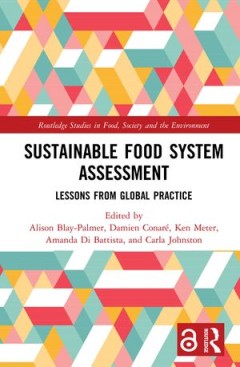
Sustainable Food System Assessment Lessons from Global Practice
Sustainable Food System Assessment provides both practical and theoretical insights about the growing interest in and response to measuring food system sustainability. Bringing together research from the Global North and South, this book shares lessons learned, explores intended and actual project outcomes, and highlights points of conceptual and methodological convergence.Interest in assessing…
- Edition
- -
- ISBN/ISSN
- 0429801394, 9780429801396
- Collation
- -
- Series Title
- -
- Call Number
- -
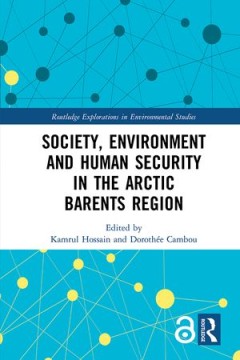
Society, Environment and Human Security in the Arctic Barents Region
The Arctic-Barents Region is facing numerous pressures from a variety of sources, including the effect of environmental changes and extractive industrial developments. The threats arising out of these pressures result in human security challenges.This book analyses the formation, and promotion, of societal security within the context of the Arctic-Barents Region. It applies the human security f…
- Edition
- -
- ISBN/ISSN
- 9781351171236, 1351171232
- Collation
- -
- Series Title
- -
- Call Number
- -
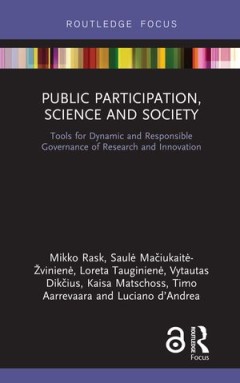
Public Participation, Science and Society Tools for Dynamic and Responsible …
The field of public participation is developing fast, with phenomena such as citizen science and crowdsourcing extending the resource base of research, stimulating innovation and making science more accessible to the general population.Promoting public participation means giving more weight to citizens and civil society actors in the definition of research needs and in the implementation of res…
- Edition
- -
- ISBN/ISSN
- 9781351272957, 1351272950
- Collation
- -
- Series Title
- -
- Call Number
- -

The Politics of Uncertainty Challenges of Transformation
Why is uncertainty so important to politics today? To explore the underlying reasons, issues and challenges, this book’s chapters address finance and banking, insurance, technology regulation and critical infrastructures, as well as climate change, infectious disease responses, natural disasters, migration, crime and security and spirituality and religion.The book argues that uncertainties mu…
- Edition
- -
- ISBN/ISSN
- 9781000163445, 100016344X
- Collation
- -
- Series Title
- -
- Call Number
- -
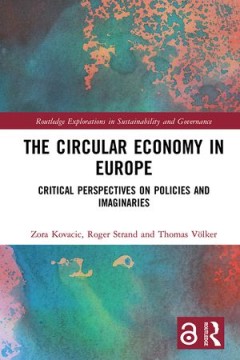
The Circular Economy in Europe Critical Perspectives on Policies and Imagina…
The Circular Economy in Europe presents an overview and a critical discussion on how circularity is conceived, imagined, and enacted in current EU policy-making. In 2013, the idea of a circular economy entered the stage of European policy-making in the efforts to reconcile environmental and economic policy objectives. In 2019 the European Commission declared in a press release that the Circular…
- Edition
- -
- ISBN/ISSN
- 9780429578724, 0429578725
- Collation
- -
- Series Title
- -
- Call Number
- -
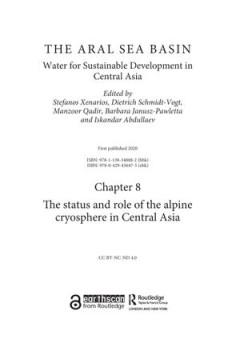
Chapter 8 The Status and Role of the alpine Cryosphere in Central Asia
The alpine cryosphere including snow, glaciers and permafrost are critical to water management in the Aral Sea Basin (ASB) and larger Central Asia (CA) under changing climate: as they store large amounts of water in its solid forms. Most cryospheric components in the Aral Sea Basin are close to melting point, and hence very vulnerable to a slight increase in air temperature with significant con…
- Edition
- -
- ISBN/ISSN
- 9781138348882
- Collation
- -
- Series Title
- -
- Call Number
- -
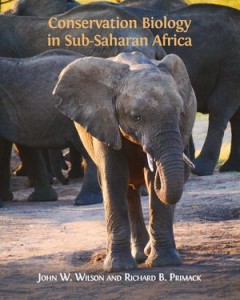
Conservation Biology in Sub-Saharan Africa
Conservation Biology in Sub-Saharan Africa comprehensively explores the challenges and potential solutions to key conservation issues in Sub-Saharan Africa. Easy to read, this lucid and accessible textbook includes fifteen chapters that cover a full range of conservation topics, including threats to biodiversity, environmental laws, and protected areas management, as well as related topics such…
- Edition
- -
- ISBN/ISSN
- 9781783747528
- Collation
- -
- Series Title
- -
- Call Number
- -

Species composition and distribution of the dipterans (Insecta: Diptera) in B…
The Bulgarian dipteran fauna has been studied for 160 years (Löw 1862). Since then, a vast material of faunistic data concerning the territory of Bulgaria has been accumulated. During the last 70 years, different parts of the country are under landscape changes and anthropogenic impact. Changes in the natural communities are caused by some alien species, introduced in the last 100 years. The e…
- Edition
- -
- ISBN/ISSN
- 9786192480516
- Collation
- -
- Series Title
- -
- Call Number
- -
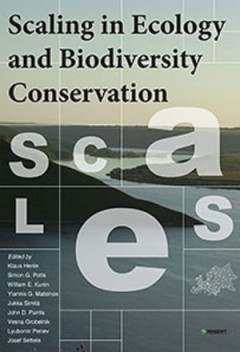
Scaling in Ecology and Biodiversity Conservation
The 5-year EU project project Securing the Conservation of biodiversity across Administrative Levels and spatial, temporal, and Ecological Scales (SCALES) has come to an end in July 2014 resulting in a first of its kind description of challenges that arise in protecting biodiversity across different scales. A wide range of practical methods and recommendations to improve conservation at region…
- Edition
- -
- ISBN/ISSN
- 9789546427403
- Collation
- -
- Series Title
- -
- Call Number
- -
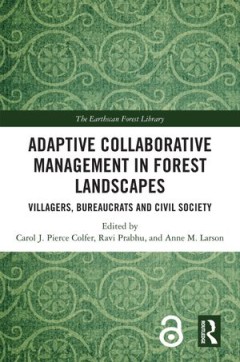
Adaptive Collaborative Management in Forest Landscapes
This book examines the value of Adaptive Collaborative Management for facilitating learning and collaboration with local communities and beyond, utilising detailed studies of forest landscapes and communities. Many forest management proposals are based on top-down strategies, such as the Million Tree Initiatives, Forest Landscape Restoration (FLR) and REDD+, often neglecting local communities. …
- Edition
- -
- ISBN/ISSN
- 9781000483017, 1000483010
- Collation
- -
- Series Title
- -
- Call Number
- -
 Computer Science, Information & General Works
Computer Science, Information & General Works  Philosophy & Psychology
Philosophy & Psychology  Religion
Religion  Social Sciences
Social Sciences  Language
Language  Pure Science
Pure Science  Applied Sciences
Applied Sciences  Art & Recreation
Art & Recreation  Literature
Literature  History & Geography
History & Geography